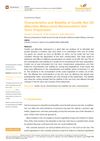mTOR regulator and immunosuppressant used more recently for anti-aging and hair regrowth
a natural and far less effective alternative to Finasteride
extract, clone, and reinsert your own hair cells
signaling protein that, when suppressed, may grow hair by reducing inflammation and stem cell loss



